Regular And Irregular Verb
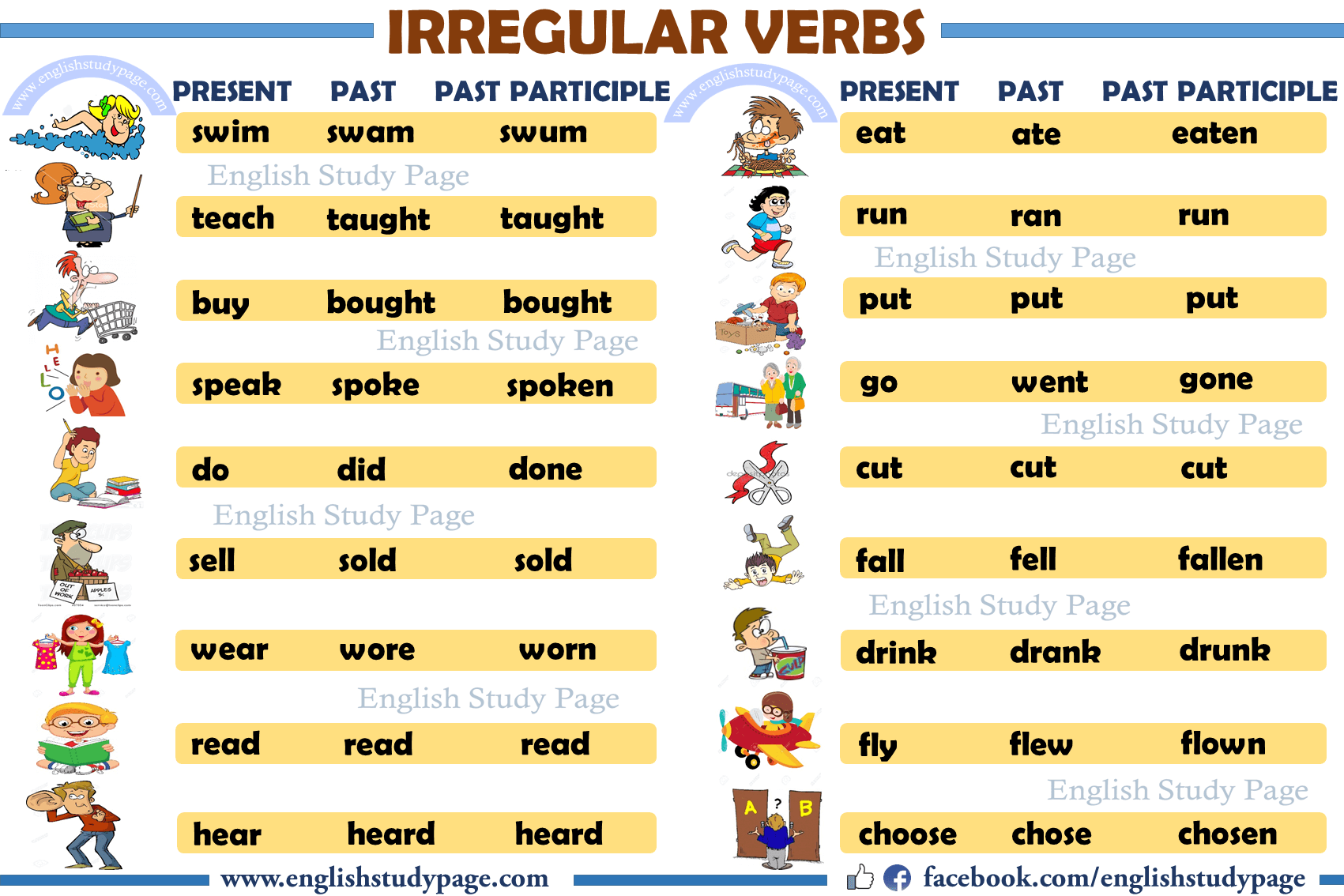 Detailed Irregular Verbs List English Study Page
Detailed Irregular Verbs List English Study Page
Difference Between Regular and Irregular Verbs (with Examples and Comparison Chart)

Verbs are those words which express the action or state of the subject in a sentence. There are certain forms which a verb can take, called as ‘principal parts of verbs‘, these are infinitive, third person present, simple past, past participle and present participle. If you take a glance at these forms, you’ll notice that there are some verbs whose simple past and past participle have a set or fixed ending which are called Regular Verbs.
Conversely, there are certain verbs which either change their forms completely or remain the same, these are known as Irregular Verbs. Let’s take a read of these examples to understand the difference between regular and irregular verbs:
| Base form | Simple Past | Past Participle |
|---|---|---|
| Regular Verbs | ||
| Carry | Carried | Carried |
| Grab | Grabed | Grabed |
| Jump | Jumped | Jumped |
| Walk | Walked | Walked |
| Iregular Verbs | ||
| Break | Broke | Broken |
| Drink | Drank | Drunk |
| Eat | Ate | Eaten |
| Read | Read | Read |
Content: Regular Verbs Vs Irregular Verbs
Comparison Chart
| Basis for Comparison | Regular Verbs | Irregular Verbs |
|---|---|---|
| Meaning | Regular Verbs are the verbs with usual simple past and past participle forms. | Irregular verbs refers to the verbs which have same or different present and past tense forms. |
| Conjugation | Standard rules for conjugation | Special rules for conjugation |
| Example | Look-Looked-Looked | Break-broke-broken |
| act-acted-acted | Know-Knew-Known | |
| stop-stopped-stopped | Put-put-put |
Definition of Regular Verbs
Regular Verbs refers to the verbs that depend on the basic pattern of inflection (or inflexion). Inflection means the variation in the form of a word, usually in the end, to describe the tense, mood, number, gender and so forth.
The formation of tenses in regular verbs, particularly the past tense forms, i.e. simple past and past participle, is done by adding a predefined suffix, i.e., -d, -ed, or -ied to the present infinitive. The rules are given as under:
- When the action word ends with a vowel, then -d is added to convert it into past tense. For example:
Base form Simple Past Past Participle Close Closed Closed Die Died Died Hate Hated Hated Sue Sued Sued - But when it ends with a consonant, then -ed is added to change it into past form. For example:
Base form Simple Past Past Participle Dress Dressed Dressed Rip Ripped Ripped Roll Rolled Rolled Slam Slammed Slammed - If the last letter of the word ends with y, then -ied to change its form:
Base form Simple Past Past Participle Bury Buried Buried Cry Cried Cried Fry Fried Fried
Definition of Irregular Verbs
An irregular verb is a type of strong verb, which has some special rules for creating past tense forms. So, these verbs do not end with -d, -ed, or -ied, rather they change their forms completely, in a sense that the irregular verbs are transformed into an entirely different word, as you can see in the example below:
| Base form | Simple Past | Past Participle |
|---|---|---|
| Build | Built | Built |
| Catch | Caught | Caught |
| Do | Did | Done |
| Go | Went | Gone |
| Know | Knew | Known |
| Lie | Lay | Lain |
Nevertheless, there are some verbs which do not change their forms at all, as given in the example below:
| Base form | Simple Past | Past Participle |
|---|---|---|
| Bid | Bid | Bid |
| Cut | Cut | Cut |
| Hit | Hit | Hit |
| Let | Let | Let |
| Put | Put | Put |
The difference between regular and irregular verbs are described in the points given below:
- The regular verb can be described as the verb that follows the standard rule in the creation of simple past and past participle forms. On the other hand, Irregular verbs are the verbs having own set of rules, to create past tense forms.
- While regular verbs follow a pattern of inflection, Irregular verbs end in different ways, i.e. its simple past and past participle forms are either purely different from its base form or they are similar to the base form.
Examples
| Base form | Simple Past | Past Participle |
|---|---|---|
| Regular Verbs | ||
| Aim | Aimed | Aimed |
| Ban | Banned | Banned |
| Clear | Cleared | Cleared |
| Dance | Danced | Danced |
| Fix | Fixed | Fixed |
| Happen | Happened | Happened |
| Help | Helped | Helped |
| Hurry | Hurried | Hurried |
| Live | Lived | Lived |
| Nod | Nodded | Nodded |
| Paint | Painted | Painted |
| Prefer | Preferred | Preferred |
| Pull | Pulled | Pulled |
| Raise | Raised | Raised |
| Scold | Scolded | Scolded |
| Thrive | Thrived | Thrived |
| Visit | Visited | Visited |
| Work | Worked | Worked |
| Irregular Verbs | ||
| Bend | Bent | Bent |
| Bite | Bit | Bitten |
| Choose | Chose | Chosen |
| Come | Came | Come |
| Draw | Drew | Drawn |
| Feel | Felt | Felt |
| Forget | Forgot | Forgotten |
| Give | Gave | Given |
| Grow | Grew | Grown |
| Rise | Rose | Risen |
| Sing | Sang | Sung |
| Take | Took | Taken |
| Write | Wrote | Written |
| Burst | Burst | Burst |
| Quit | Quit | Quit |
| Set | Set | Set |
| Shut | Shut | Shut |
| Split | Split | Split |
How to remember the difference
The essential difference between regular and irregular verbs is that while regular verbs have a consistent or fixed ending when they are changed to past forms. As against, there is no such pattern followed in the case of irregular verbs, because they either entirely change their form or remains unchanged in the past tense.
Gallery Regular And Irregular Verb
 Regular And Irregular Verb Lessons Tes Teach
Regular And Irregular Verb Lessons Tes Teach
 English Exercises Past Tense Regular And Irregular Verbs
English Exercises Past Tense Regular And Irregular Verbs
 30 Regular And Irregular Verbs Png Cliparts For Free
30 Regular And Irregular Verbs Png Cliparts For Free
 English Irregular Verbs And Past Participles English At
English Irregular Verbs And Past Participles English At
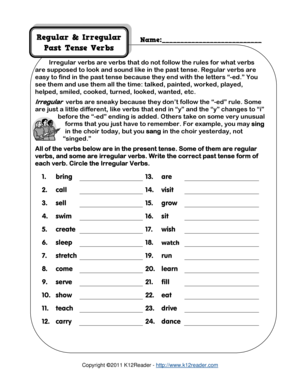 Fillable Online Regular And Irregular Verb Worksheet Grammar
Fillable Online Regular And Irregular Verb Worksheet Grammar
Learn 40 Common Irregular Verbs In English English Banana
 English Grammar A To Z What Is Irregular Verb
English Grammar A To Z What Is Irregular Verb
 Regular And Irregular Verbs In The Past Tense Production
Regular And Irregular Verbs In The Past Tense Production
 Regular And Irregular Verbs Interactive Worksheets
Regular And Irregular Verbs Interactive Worksheets
 Irregular Verbs Complete Irregular Verbs List In English
Irregular Verbs Complete Irregular Verbs List In English
 Common Regular And Irregular Verbs Vocabulary Home
Common Regular And Irregular Verbs Vocabulary Home
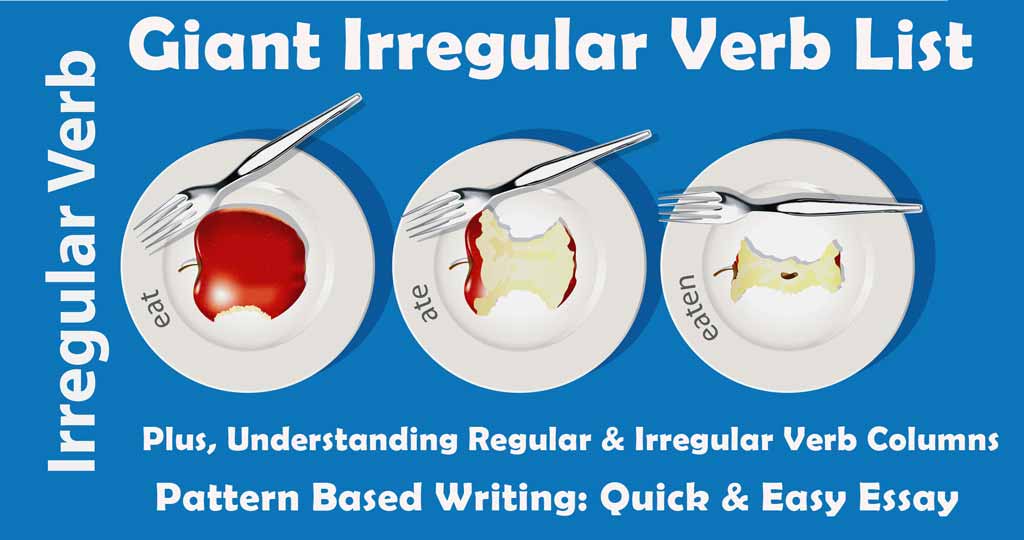 Giant Irregular Verb List Plus Understanding Regular And
Giant Irregular Verb List Plus Understanding Regular And
 List Of Regular And Irregular Verbs English Esl Worksheets
List Of Regular And Irregular Verbs English Esl Worksheets
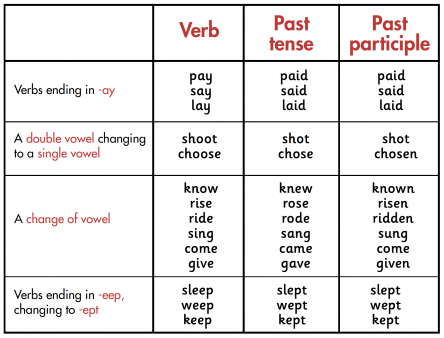 English Irregular Verbs Explained Irregular Verbs In Ks2
English Irregular Verbs Explained Irregular Verbs In Ks2
 Pdf The Development Of Regular And Irregular Verb
Pdf The Development Of Regular And Irregular Verb
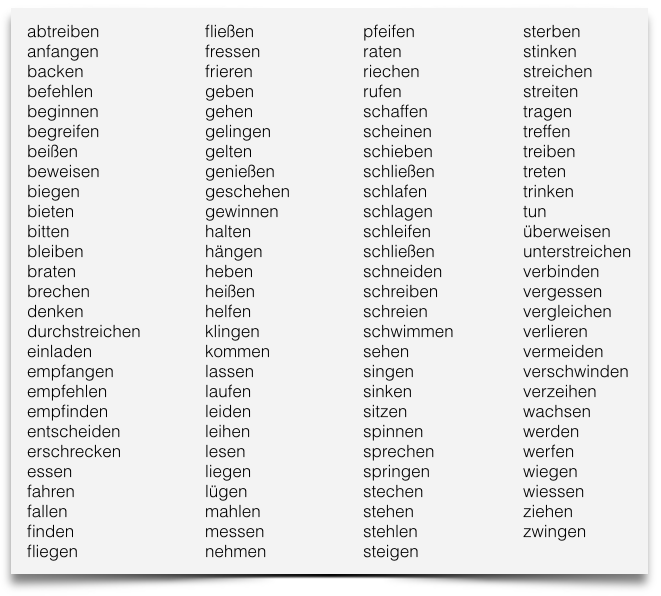 Learn German Irregular Verbs Learn German Smarter
Learn German Irregular Verbs Learn German Smarter
 Regular And Irregular Verbs Grammatical Tense
Regular And Irregular Verbs Grammatical Tense
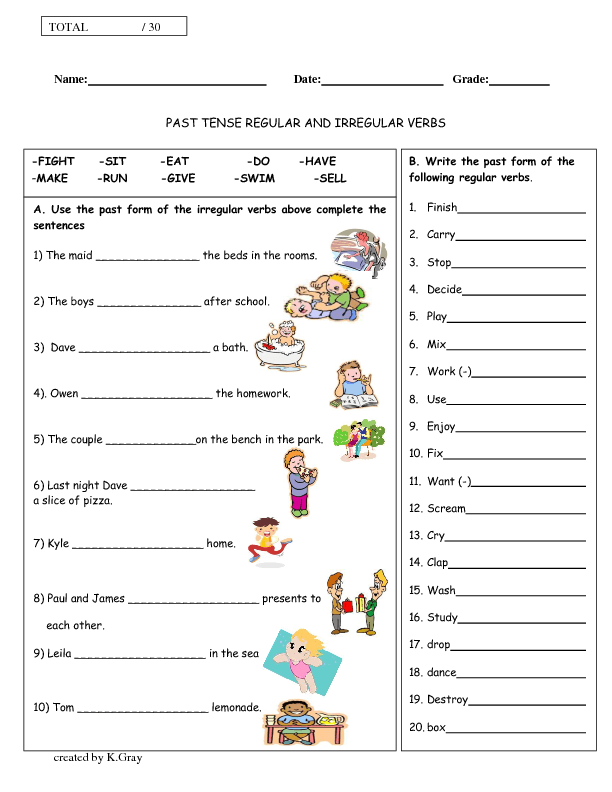 Regular And Irregular Verbs Past Tense
Regular And Irregular Verbs Past Tense
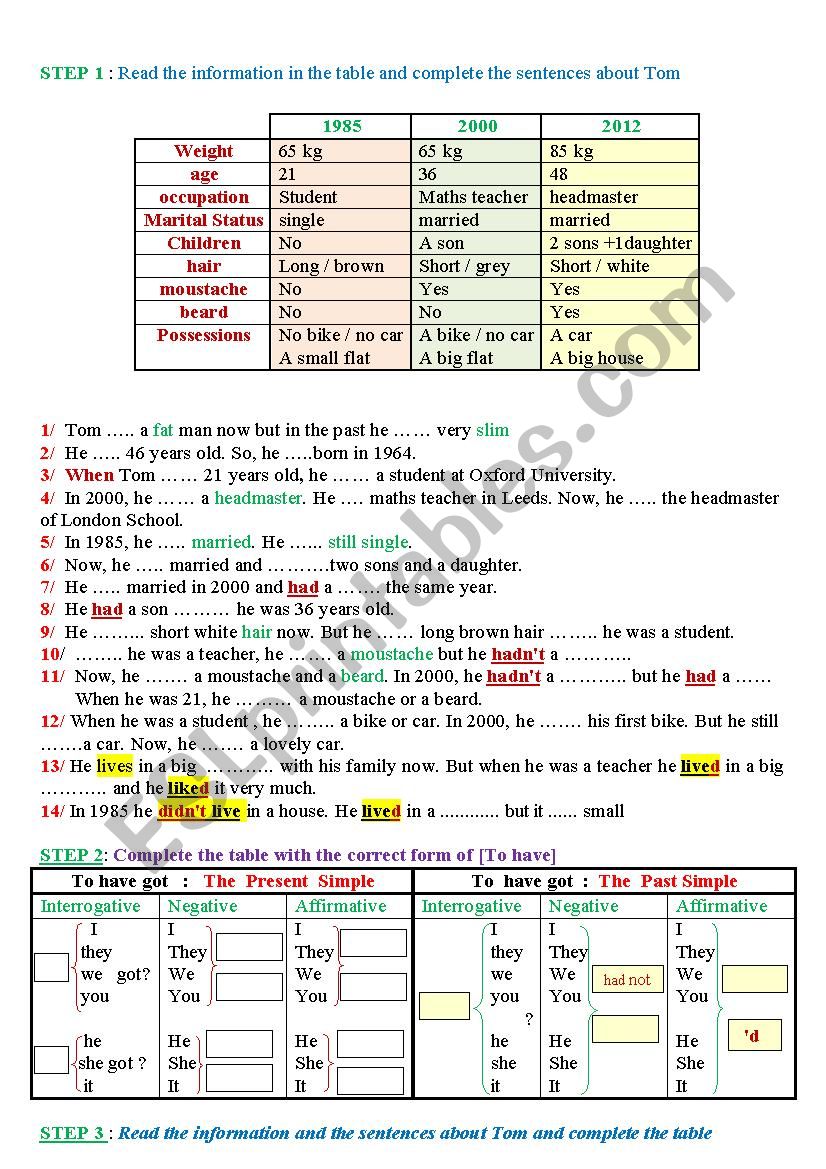 The Past Simple To Have Ordinary Regular And Irregular
The Past Simple To Have Ordinary Regular And Irregular
What Is The Difference Between Irregular And Regular Verbs
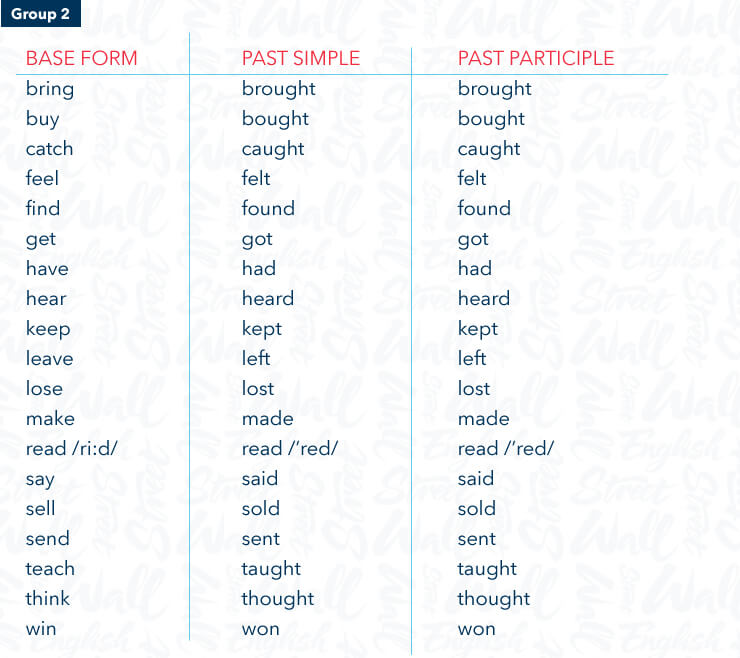 How To Learn Regular And Irregular English Verbs Wall
How To Learn Regular And Irregular English Verbs Wall

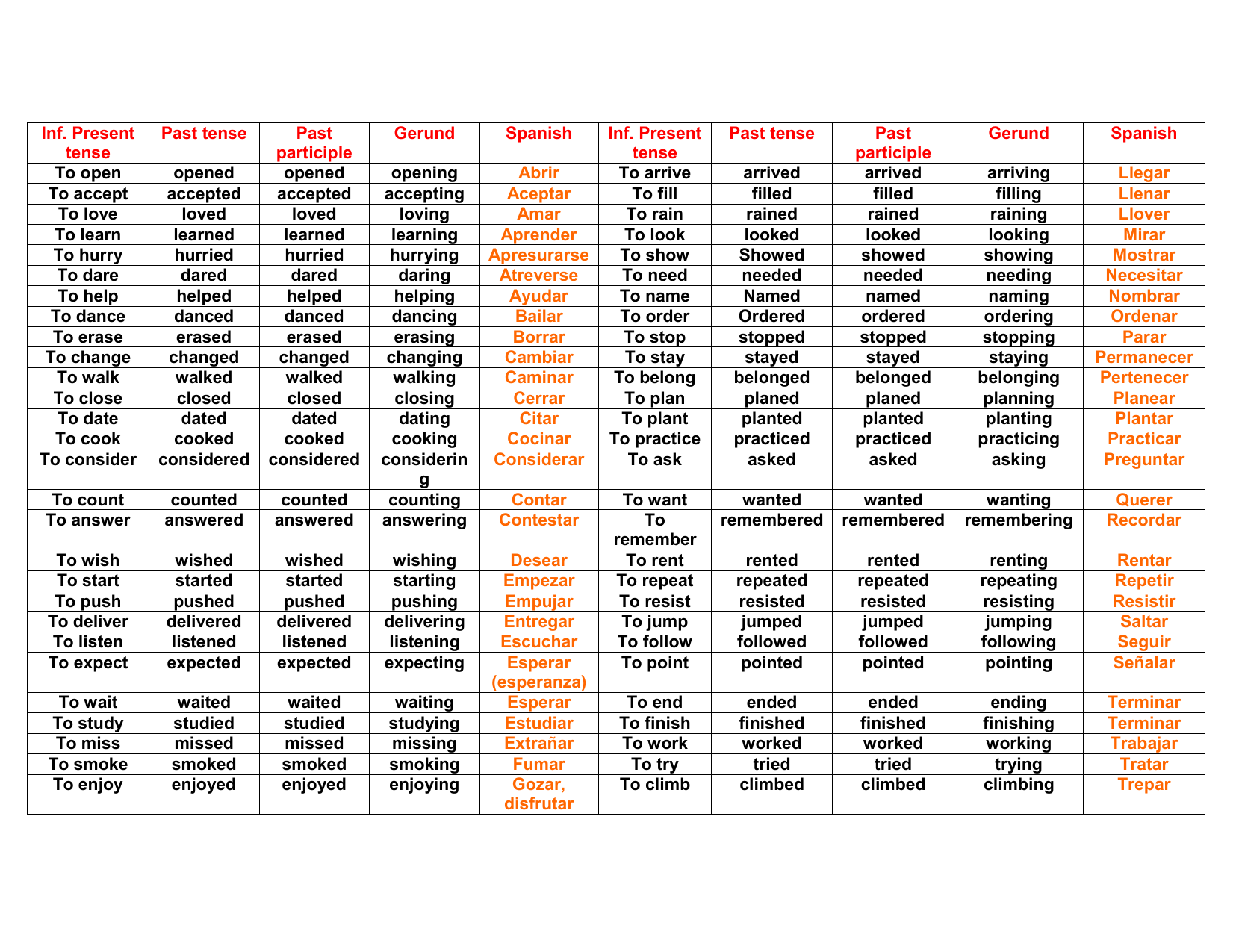

0 Response to "Regular And Irregular Verb"
Post a Comment